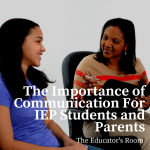![]() There are major shifts in all curriculum with the new common core standards. Many parents are intimidated by the changes and all doing all they can to help their children succeed. As an ELA teacher, I have a simple and obvious solution to help your high school student read. Seriously.
There are major shifts in all curriculum with the new common core standards. Many parents are intimidated by the changes and all doing all they can to help their children succeed. As an ELA teacher, I have a simple and obvious solution to help your high school student read. Seriously.
Don’t just hand them a book or watch them struggle over the complex classic, your child’s English teacher has assigned. Read it with them. Buy your own copy, show your child how you take notes and mark up the text. Ask them questions and discuss what you read with them and how you perceived it. Show them where you found your ideas (CCSS.ELA-LITERACY.RL.11-12.1
Cite strong and thorough textual evidence to support analysis of what the text says explicitly as well as inferences drawn from the text, including determining where the text leaves matters uncertain.). Not sure what to talk about or ask? Try Reading Group Guides.
Find out what the anchor text (The primary piece of literature or nonfiction in a unit) that your child is studying. Read it with them. Not only will it ensure your child is reading the material, but it gives you something to do together. Discussing complex texts together is an excellent bonding activity. Your child may have unique perspectives about the events in the novel and gives you as a parent an excellent opportunity to discuss what you value and how you would hope they handle a situation. Two major skills your child should grasp while they read are themes and author’s choices. Discuss what lessons (themes) are developed throughout the novel. ( CCSS.ELA-LITERACY.RL.11-12.2 Determine two or more themes or central ideas of a text and analyze their development over the course of the text, including how they interact and build on one another to produce a complex account; provide an objective summary of the text.) Author’s choices offers you an opportunity to connect the past to the future. Ask questions like could this happen today or what if this was set yesterday? What if this event happened first? Questions like this will open up a new perspective on the text. (CCSS.ELA-LITERACY.RL.11-12.3Analyze the impact of the author’s choices regarding how to develop and relate elements of a story or drama (e.g., where a story is set, how the action is ordered, how the characters are introduced and developed).
If you are thinking, ‘I’m not really into reading fiction.” Nonfiction texts are another great way to help your child. Nonfiction has grown significantly in the ELA classroom. Evaluating arguments and deciding if the speaker was effective is a major skill that must be developed. Discuss what points of the speech were effective and which were not. Why would someone agree with him? What argument could be used to counter this? {CCSS.ELA-LITERACY.RI.11-12.5 -Analyze and evaluate the effectiveness of the structure an author uses in his or her exposition or argument, including whether the structure makes points clear, convincing, and engaging and CCSS.ELA-LITERACY.RI.11-12.6 Determine an author’s point of view or purpose in a text in which the rhetoric is particularly effective, analyzing how style and content contribute to the power, persuasiveness or beauty of the text.} Why not watch a presidential address together? Or print out a historical speech? There are plenty of nonfiction books and scientific articles you could read and share together. If you are not sure where to begin, SOAPSTONE is a great place to start. Discuss the Speaker. Who is he? What is his agenda? Occasion. is the atmosphere the speech is given in. What event caused this speech? What is going on in the world at this time? Audience. Who is this for? Us? The voters? Purpose. Why is he giving this speech? Inform? Persuade? Explain? Subject. What is the speech about? Finally, Tone. How does he sound? Serious? Urgent? Remorseful?
Reading with your teenager, not only ensures they are reading the complex texts common core demands, but it allows you to an opportunity for conversation. Discussing controversial situations and challenges with your teenager will help enhance your relationship. Happy reading.






